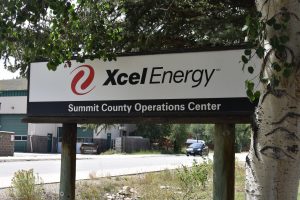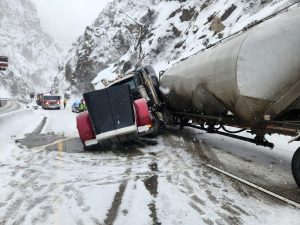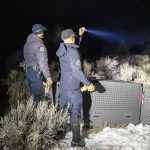Ask Eartha: What are ‘time of use’ electricity rates?
Ask Eartha

Kit Geary/Summit Daily News archive
Dear Eartha, I just received a notice that my home is being switched to something called “time of use” electricity rates. Does this mean my bills are going up?
Great question! If you’ve been living in Summit County for a while, you’re probably used to a simple, flat-rate electricity bill. You pay the same price for each kilowatt hour of electricity, whether you run your dishwasher at 2 a.m. or at 6 p.m. That approach is straightforward, but it doesn’t reflect the reality of how electricity is generated and used. On cold winter evenings or hot summer afternoons, when everyone is cranking up heaters, air conditioners and appliances, the electrical grid works hardest. Producing electricity during those times costs more, even if the flat rates don’t show it. That’s where time of use pricing comes in.
With the rollout of new smart meters across Xcel Energy’s service territory in Colorado, the utility is shifting its residential and small commercial customers onto the time of use rate plan. The idea is simple: Electricity costs more when demand is high and less when it’s low. By encouraging customers to shift usage to off-peak times, time of use helps reduce stress on the grid, supports cleaner energy integration, and even gives us an opportunity to save money.
What does time of use mean for you?
For Summit County Xcel customers who received smart meters this summer, time of use pricing will go into effect after your last September billing cycle. Moving forward, you’ll pay different amounts for electricity depending on when you use it (hence, “time of use”). On-peak hours are the most expensive, running from 5 p.m. to 9 p.m. This is when the grid is under the most pressure, and electricity is most costly to produce. Off-peak hours are the least expensive and include all other times of day, as well as weekends and major holidays. There are also different rates for summer and winter. From October 1 through May 31, on-peak electricity will cost $0.18 per kilowatt hour, and off-peak will cost about $0.07.
Many residents may wonder about how this change will affect their monthly bill. Analysis by Colorado’s Public Utilities Commission shows that time of use rates shouldn’t cost you more. And in fact, these rates are likely to save you money if you change your habits. For example, if you plan to do your laundry, run the dishwasher or charge an electric car during off-peak hours, you’ll be paying less for the electricity needed to run these appliances compared to the current flat rate (and if you are an electric car owner, remember that Xcel offers a bill credit for charging during off-peak hours). You can also consider small tech upgrades like smart plugs or timers to control lights and small appliances or electronics. And if you heat with electricity — whether with baseboard heaters or a heat pump — getting an energy audit would be a great way to ensure your home is well insulated and not losing the heat you pay good money for.
What if you have solar panels? Check out Xcel Energy’s online information sheet to learn more about how time of use will impact your virtual Solar Bank. And whether or not you have solar, if you decide that time of use isn’t right for your household, you can opt out and stay on the residential flat rate.
Benefits of time of use rates
Beyond individual bills, time of use helps the community as a whole. By decreasing peak electricity demand, we avoid overloading the grid, which helps prevent blackouts. Spreading out electricity use throughout the day also reduces the need for expensive peak power plants — which only operate when demand is highest. Time of use rates also make it easier for utilities to integrate renewable energy like wind and solar. So even small adjustments at your house can contribute to a more reliable, cleaner energy system for all of us.
The next time you reach to start a load of laundry at 6 p.m., ask yourself: Could this wait until later? Your wallet — and the planet — might just thank you.
Ask Eartha Steward is written by the staff at the High Country Conservation Center, a nonprofit dedicated to waste reduction and resource conservation. Submit questions to Eartha at info@highcountryconservation.org.


Support Local Journalism

Support Local Journalism
As a Summit Daily News reader, you make our work possible.
Summit Daily is embarking on a multiyear project to digitize its archives going back to 1989 and make them available to the public in partnership with the Colorado Historic Newspapers Collection. The full project is expected to cost about $165,000. All donations made in 2023 will go directly toward this project.
Every contribution, no matter the size, will make a difference.









